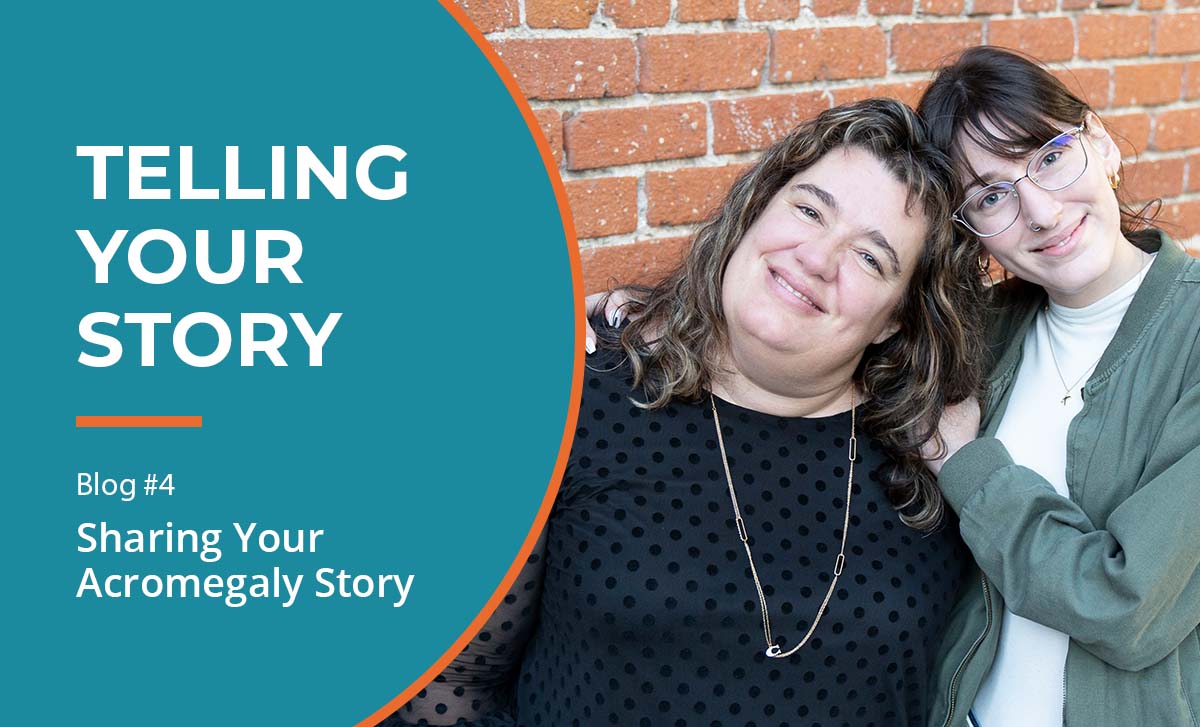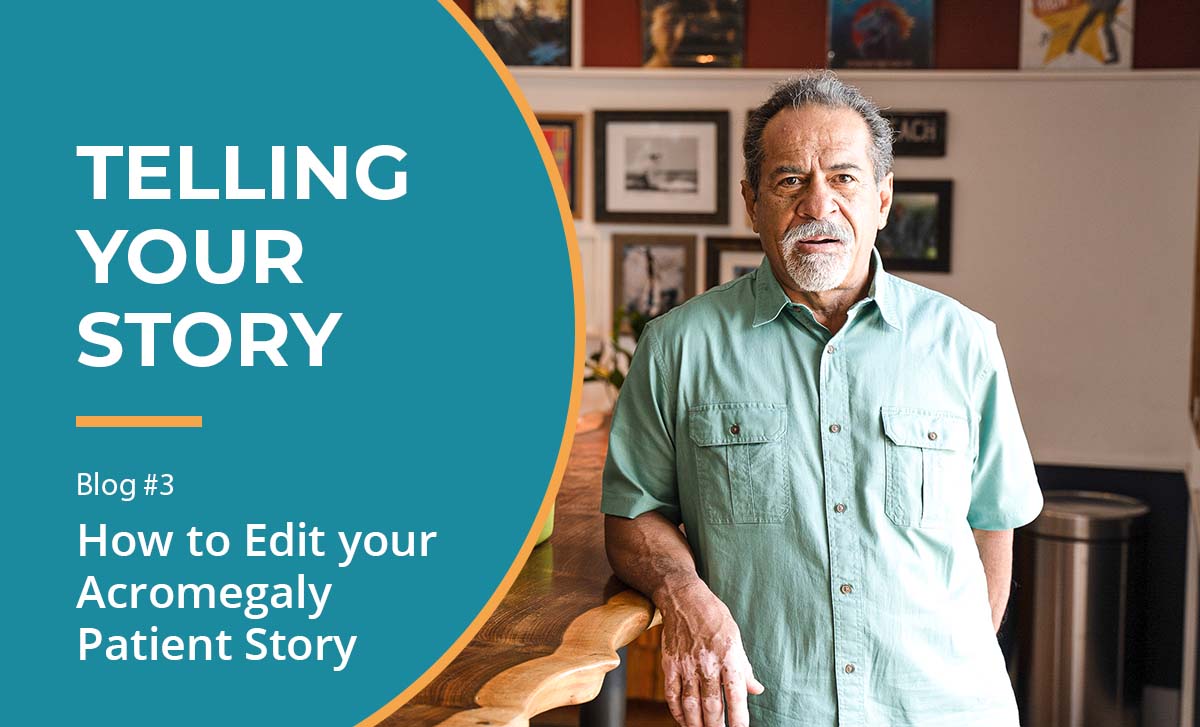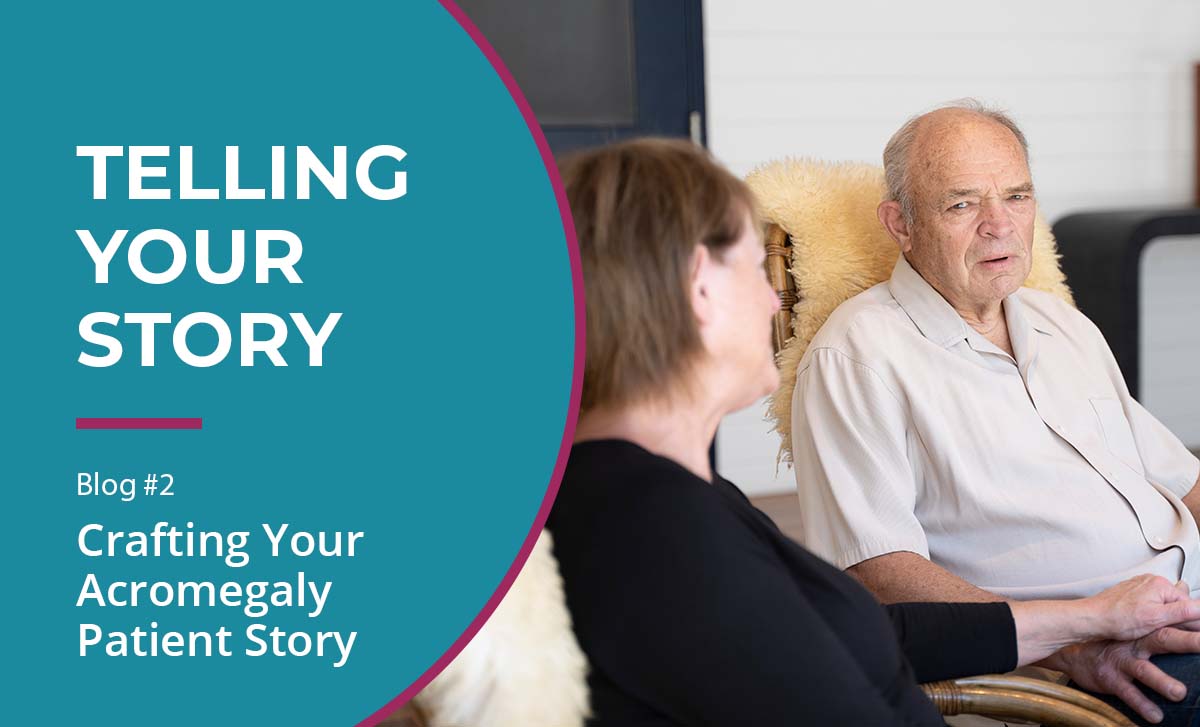Finding the Right Therapist When You Have Acromegaly
Society has developed all sorts of ways to help determine if someone might make a good match. There are dating apps to find a romantic partner, review sites like Yelp to find the perfect restaurant, and job sites where the perfect job for you awaits.
But living with a rare disease like acromegaly – or any other rare disease, for that matter – can cause a level of mental stress that may motivate you to seek therapy. And just like other choices we face in life, choosing the right therapist for you and your unique circumstances is a decision that warrants careful thought. Luckily, there are specific ways you can approach the process, and concrete steps you can take to help you find a good match.
“A relationship with a therapist can be a support. It doesn’t mean you have to see one forever, or every week. It could be once a year. As long as you feel like that’s a trusted person.”
Linda Rio, MA, LMFT
Consult the organizations – general and specific
Luckily when it comes to addressing the mental burden of acromegaly, there are trusted professional sources such as the APA’s online Psychologist Locator or the detailed listings from the AAMFT or Psychology Today that can be great starting points.3 You may find a therapist listed who specializes in rare disease counseling. If not there, you can tap into a resource like Acromegaly Community to find therapists who meet the qualifying standards of these peer groups. These days, there are even many options for online therapy, both individual and group kinds, that let you reap the benefits without ever leaving home.
“To be able to talk with somebody and actually listen is powerful, as opposed to my giving you a worksheet and going over endless amounts of irrational thoughts.”
SHAWN
A phone interview can tell you a lot
There is absolutely nothing odd or unexpected about your wanting to speak to a potential therapist before booking your first appointment with him or her.1 These days, many of them offer a free initial conversation via phone or email. Aside from providing you with a simple, yet all-important, chemistry check, this first touch is when you can ask key questions like: Have you ever heard of the pituitary gland? Do you have any experience or background in seeing patients with acromegaly or a pituitary disease? Are you willing to consult with somebody who might be able to direct you to reading material or to help you understand what I’m dealing with? You want to find out whether this mental health provider is going to be curious about you, if they’re going to see you as an individual and understand that there is a psychological component to your disease.2
“Engaging a therapist takes a lot of courage. I give people a lot of credit.“
Linda Rio, MA, LMFT
Don’t hesitate to be persistent and thorough
Ask if they have a subspecialty, such as Medical Family Therapist, which is additional training, often done alongside primary care doctors, which provides an awareness of the impact the body can have on the mind. Sometimes you can find a nurse therapist or someone who has had some nursing classes or gone to med school.1 Remember you are entitled to ask a provider these questions. If they’re not willing to answer them, or to engage you, then simply go to somebody else.2
Your insurance company can be a resource
If you have a particular insurance plan, you may be able to get a case manager, particularly if you have an illness like acromegaly or other rare endocrine disease. That person should have an awareness of your needs, and often an insurance company has a list of mental health providers and their backgrounds and can refer you to someone.
If there is no one, sometimes you can go to that case manager and suggest someone you’ve found yourself and ask if the insurance company would be willing to contract with them, or work something out in another way. Sometimes insurance companies will do it because of the uniqueness of the situation.
These suggestions are just the tip of the iceberg when it comes to an important decision like choosing a therapist. And there are more things to keep in mind during the course of therapy once you do start seeing someone. We invite you to explore the references and resources below to learn more. And for additional insights, important considerations, and supportive ideas, read our full interview with two experienced therapists and acromegaly advocates.
Additional Resources
References
- How to Find the Right Therapist, Arash Emamdazeh, PsychologyToday.com, Jan 4, 2020
- Linda Rio, MA, LMFT
- 9 Tips for Finding the Right Therapist, Healthline.com



